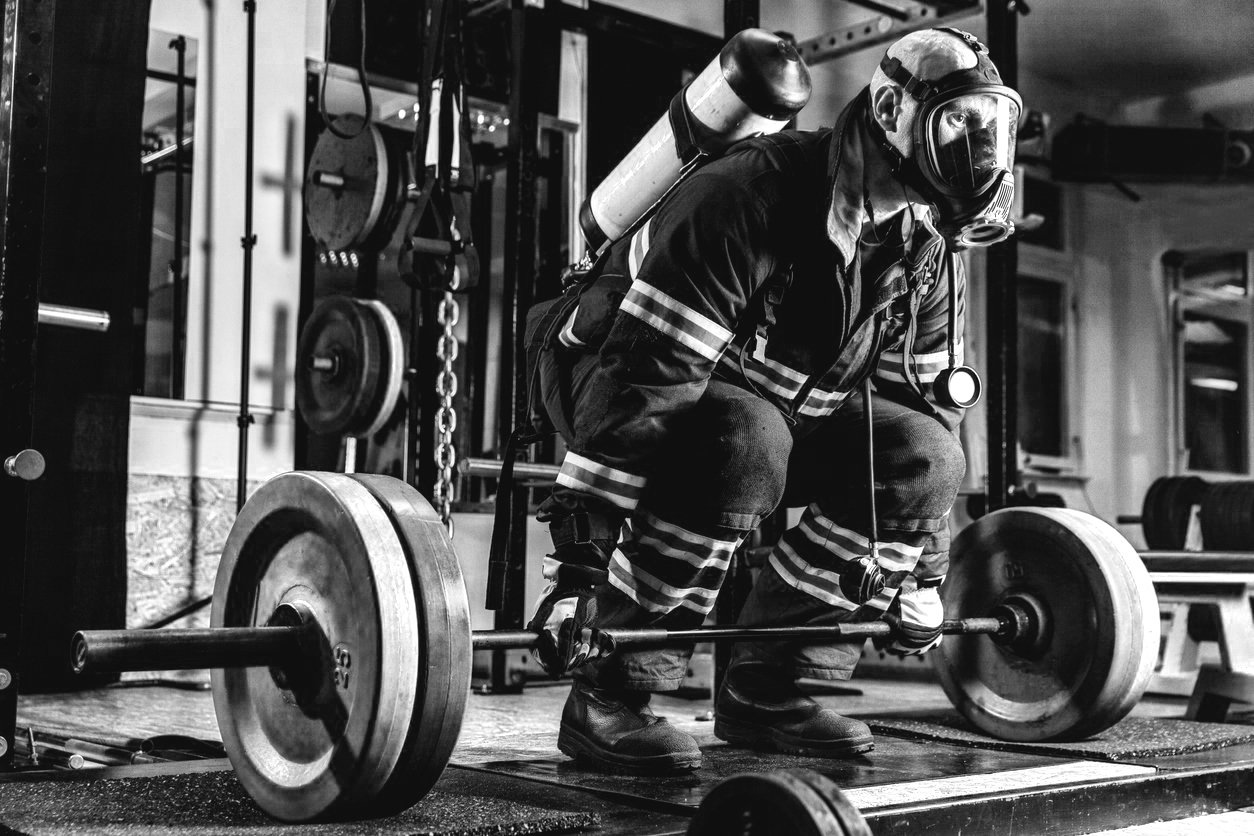

GREETINGS.
I understand how easy it can be to fall into the slump that grows daily and causes you to create excuses for yourself. It is a constant battle to control your choices and minimize the influences the outside world has on you. It is a constant choice to rest or keep pushing forward towards the goal you set. It takes DISCIPLINE because motivation is fleeting. Motivation is fair weather, discipline trains no matter the circumstance, that is the key to reaching your potential.
I will help people find where their hang ups are and find out why they make excuses and we will find their discipline.
FAQs
I understand that starting a workout program, staying disciplined, pursuing a career in the fire service can be overwhelming and may leave you with lots of questions, I have prepared some answers to those questions.
-
Starting fitness level: Beginners may see noticeable definition within 4-8 weeks, while experienced individuals may take longer.
Training intensity and consistency: Consistent, challenging workouts that target specific muscle groups are essential for muscle growth.
Diet: A calorie surplus with adequate protein intake is necessary to provide the building blocks for muscle tissue.
Body fat percentage: Lower body fat levels allow muscles to appear more defined.
Genetics: Some individuals have a higher genetic predisposition for muscle growth.
-
Visit your local fire department and ask these questions:
1. What is the age requirement?
2. Do you offer volunteer / reserve programs?
3. Where can I take an EMT class?
4. Ask to do ride alongs.
5. Ask for advice, every person has a lesson to share with you. -
A typical 24-hour shift will begin with the firefighters inspecting all of their safety gear and equipment. The firefighter / paramedics will also inspect the medical equipment that they use on medical aids. The engineer (driver) will inspect the fire engine and other fire apparatus to ensure that they are ready. While the crew is completing the inspections, the Captain will schedule the day’s activities. This can include training drills, building inspections, physical fitness, report writing, and other assigned tasks or projects. Also, of course, they respond to both emergency and routine calls for assistance.
-
When a firefighter is suited up to fight a fire, he/she is wearing close to 50 pounds of protective gear not including the hoses and tools that are required to perform their job. Because firefighting is a very physically demanding job, the firefighters are encouraged to work out while on duty and to stay physically fit.
-
When cars were first invented, they were all painted black. So to help clear the roads when a fire truck was coming through, they painted them red so everyone would see them rushing to an emergency. Fire engines being painted red is a tradition that dates back to the early 1900s.
-
Dalmatians became the dog of choice for firefighters in the era of horse-drawn fire engines. Their natural compatibility with horses made them ideal companions. Dalmatians would run alongside fire carriages, helping to clear the path and guarding the equipment while firefighters attended to fires. Today, they serve more as beloved mascots and companions in firehouses.
-
Sleep is important for muscle growth because your muscles recover and grow while you're asleep. You should try to get 8–10 hours of sleep per night.
-
Exercises like lifting, pushing, and pulling create changes in your muscles that result in them becoming longer, stronger, and bigger. You can use free weights, weight machines, your own body weight, or resistance bands.
-
Muscle growth occurs during recovery, so you should give your muscles time to recover between workouts. You should try to train two or three times per week.
-
For weight training, most people can complete one set of exercises to the point of fatigue. Research suggests that at least 30 minutes of exercise 3 to 5 days a week can have a significant impact on your well-being.
-
You’ve got to have goals that are measurable and time-bound. And motivation must come within, not from someone or something else.
-
Exercise can improve brain function, boost energy, and reduce the risk of many diseases. It can also help you maintain muscle mass, improve bone health, and decrease symptoms of depression.






